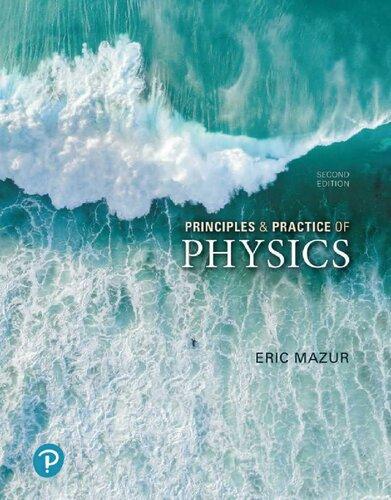Suppose several particles are in concentric circular orbits under the influence of some centripetal component of force,
Question:
Suppose several particles are in concentric circular orbits under the influence of some centripetal component of force, the magnitude of which depends on distance from the center of the motion. Each particle has a different orbital radius \(r\) and a corresponding period \(T\). How does the force depend on \(r(a)\) if \(T\) is proportional to \(\sqrt{r},(b)\) if \(T\) is proportional to \(r^{3 / 2}\), and (c) if \(T\) is independent of \(r\) ?
Fantastic news! We've Found the answer you've been seeking!
Step by Step Answer:
Related Book For 

Question Posted:





